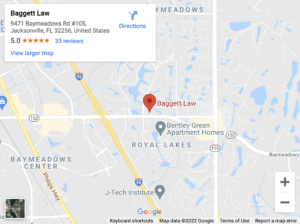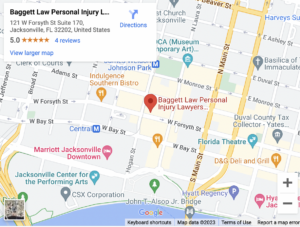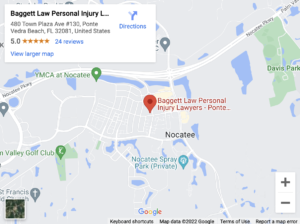
A contingent fee, also known as a contingency fee, is a payment arrangement that allows you to retain the best legal representation even without a dime in your pocket. In contrast to the fixed hourly rate that prevails in most legal practice areas, the contingent fee is based on a pre-agreed percentage of the ultimate recovery.
How a Contingency Fee Arrangement Works

Following is a description of the basic features of a contingent fee arrangement. These arrangements can differ somewhat from lawyer to lawyer and from client to client. If you have already retained an attorney, read your fee agreement for a specific description of your payment arrangements.
Free Initial Consultation
Almost any personal injury lawyer will offer you a free initial consultation, typically by telephone, chat message, or email exchange. From the lawyer’s perspective, the purpose of the initial consultation is to decide whether your claim is winnable. Most personal injury lawyers will only take a case that they believe they will probably win.
No Legal Fees Up Front
For the client, the primary benefit of a content fee arrangement is its “no win, no pay” structure. To “win” in this context means to receive a verdict or a settlement. Without a verdict or a settlement, you will owe nothing in legal fees.
It is the possibility of working for nothing that prompts most lawyers to agree to represent only clients with strong personal injury claims. It is the strength of your claim, not the thickness of your wallet, that counts.
Costs
The “no win, no pay” system doesn’t necessarily apply to out-of-pocket expenses such as:
- Expert fees. Many claims, especially medical malpractice claims, require experts to resolve the complex issues that frequently arise. These experts charge significant fees.
- Court fees. If your claim goes to court, you must pay certain fees, including an initial filing fee. Your claim might go to court for tactical reasons, even if you eventually settle out of court.
- Costs for certified records. Hospitals, insurance companies, and government officials often charge fees for certified copies of certain legal documents (birth, death, and marriage certificates, for example).
Many personal injury lawyers require their clients to pay these fees out of their own pockets, whether they win or lose. Other lawyers will pay these fees themselves and charge them back to their clients if they win the claim. Ultimately, it is a matter of negotiation, and the stronger your claim is, the better your bargaining position with your lawyer.
Your Fee Comes Out of the Defendant’s Payment
In a contingent fee arrangement, you agree that a certain percentage of the amount of money that the defendant (or the defendant’s insurance company) pays you will go to your lawyer. This amount can range from 20% to 50%, depending on many factors (see below). Your lawyer will transfer the rest to you, except for out-of-pocket expenses.
Factors That Go Into Setting a Contingency Fee
Several factors go into determining the exact percentage that your lawyer will expect for a contingent fee. The factors include:
- The complexity of the case. Medical malpractice and product liability claims tend to be the most complex cases.
- The strength of your claim. The stronger your claim is, the less likely it is that your lawyer will end up working for free.
- The value of your claim. The more money that you can reasonably demand from the defendant, the more money both you and your lawyer are likely to make. Catastrophic injury claims, for example, are often high-value claims.
- Litigation costs, if they come out of the lawyer’s pocket.
- The reputation of the law firm, since the very mention of certain firm names can induce some defendants to settle quickly.
Ultimately, it comes down to time and money. Your lawyer’s willingness to negotiate a contingent fee is based on the amount of money they will probably earn, divided by the time that they will probably spend working on your case.
Ethical Requirements for Contingency Fees
The Florida Bar Association imposes certain ethical requirements on contingency fee arrangements, including:
- The entire arrangement must be stated clearly in a written fee agreement.
- The fee agreement must state the exact percentage that the lawyer will receive.
- Both the client and the lawyer must sign the fee agreement. Any party that will be paid must sign the fee agreement (the representative of a law partnership, for example).
- The fee agreement must state who will pay any extra expenses (such as court fees) and how and when they will pay these fees.
Failure to heed these standards can subject the lawyer to professional discipline, possibly including disbarment.
How the Contingent Fee Avoids Conflicts of Interest
Whenever a lawyer is being paid by the hour, a conflict of interest arises. It is in the client’s interest for the lawyer to work quickly (but effectively) so that the client can save money. It is in the lawyer’s interest, however, to work slowly to maximize income.
The contingent fee avoids this conflict of interest by putting both client and lawyer on the same side. Since they both make money as a percentage of the recovery, the more the client makes, the more the lawyer makes. Both parties have an incentive to maximize the value of the recovery.
Speak With a Personal Injury Lawyer Today
It probably won’t be that difficult to set up a telephone conference to “talk fee” with your prospective lawyer. Your lawyer will probably ask you many questions about your case since the strength of your claim figures heavily into their decision on your case. Contact us for a free consultation today.




